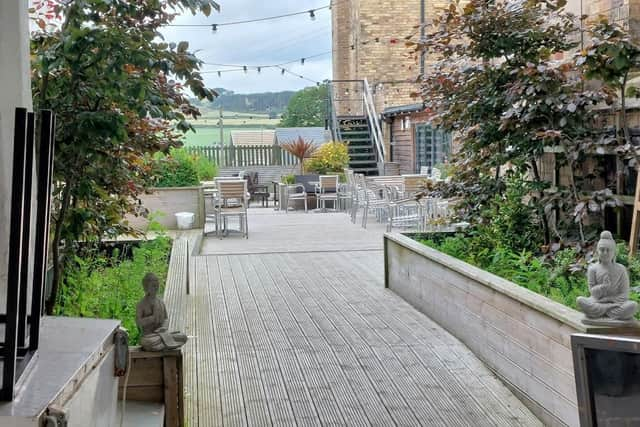Alnmouth hotel The Schooner Inn loses planning appeal over refusal of outdoor decking
and live on Freeview channel 276
An appeal by The Schooner Hotel over the refusal of its retrospective planning application for the structure has been dismissed by a planning inspector.
The decking at the Grade II-listed former coaching inn runs the full length and width of the rear courtyard within the private garden.
Advertisement
Hide AdAdvertisement
Hide AdIt was refused by Northumberland County Council planners in May on the grounds that no public benefits had been demonstrated to outweigh the harm caused to a heritage asset.


The hotel’s application said the scheme would ‘hugely improve the current unsightly nature of the courtyard and provide paying customers with a much needed seating area’.
However, a planning inspector said the overall amount of decking was ‘jarringly out of place’.
“The development does not preserve the Grade II listed building and its setting,” he stated. “As a result, the development harms the significance of this designated heritage asset.
Advertisement
Hide AdAdvertisement
Hide AdHe acknowledges: “There are economic and social benefits from expanding the business’s offering and from providing an accessible large outdoor dining area, which is suitable for a range of customers.
"This has the potential to contribute to the tourism industry in Alnmouth as well as benefiting any residents. However, I am not convinced that the only way of securing these benefits is via the extensive amount of decking in the scheme.
“Moreover, I have no substantive evidence that the continued viable use of the appeal property is dependent on the development as the building has an ongoing hotel use and there is no firm evidence that this would cease in its absence.”